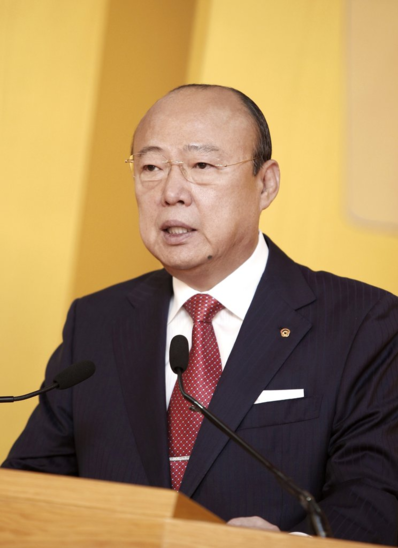
Kim Seung-youn’s imminent return poses questions about his medical history
Hanwha Group recently said that its disgraced Chairman Kim Seung-youn will return to the top posts at the conglomerate’s three affiliates in seven years.The Seoul-based group noted that the 69-year-old tycoon will take charge of posts at Hanwha Corp., Hanwha Solutions, and Hanwha Engineering & Construction.Kim was put behind bars in August 2012 on charges of unlawfully diverting company funds to pay back debts of firms practically owned by him.The chairman was released in February 2014 after he was given a three-year prison term suspended for five years. At the same time, he left the executive positions of Hanwha.Under the relevant law, he was not allowed to work for Hanwha until Feb. 18, two years after the suspended term finished. In other words, he is coming back to the managerial forefront as soon as the legal restriction is lifted.Against this backdrop, some pose questions about his medical history _ Kim left the jail for hospitalization in January 2013 after just five months of imprisonment.Initially, he was given a suspension of two months, but the term was extended repeatedly until he was given the suspended jail term in February 2014.Despite criticisms that a criminal was at a Seoul hospital instead of a prison cell, his prolonged stay at the hospital’s VIP room was endorsed for various illnesses.And the question is whether a former Alzheimer’s disease patient can lead one of the biggest conglomerates in Korea _ Hanwha has more than 50 units here and upside of 200 networks across the world.When contacted, a Hanwha official said that Chairman Kim was not diagnosed with Alzheimer’s disease.“Back then, he suffered from various diseases. A doctor worried that one of them could develop into Alzheimer’s disease. But that did not happen,” a Hanwha official said.But observers cast suspicious eyes on the diagnosis in 2013.“We have seen so many cases where top politicians or businesspeople enjoyed preferable treatments while pretending to be sick,” said a chief at a local think-tank. “I suspect that Chairman Kim's case might be a ‘cosplay’ of becoming patients.”Cosplay is a Japanese portmanteau of the English terms costume and play, which describes an activity and performance art where people wear costumes and fashion accessories to represent a specific character.In Korea, the term is sometimes used to blast anyone who pretends to be something.“I am not against the return of Chairman Kim. I think he will be able to lead Hanwha well,” said a professor in a Seoul university. “Maybe we should blame prosecutors, or the court that allowed Kim’s hospitalization for such dubious reasons.”이 기사를 공유합니다
Tim Kim
(voc200@gmail.com)

